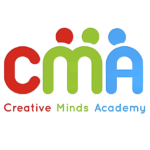| 1. Create a Word List | – Compile a list of age-appropriate words. |
| | – Include a mix of common and challenging words. |
| 2. Vocabulary Building | – Introduce words one at a time. |
| | – Provide meanings, parts of speech, and example sentences. |
| 3. Word Study | – Teach spelling rules and patterns. |
| | – Use mnemonic devices to aid memory. |
| 4. Practice Spelling | – Conduct regular quizzes and practice sessions. |
| | – Use interactive spelling games and activities. |
| 5. Pronunciation and Word Breakdown | – Help students understand word pronunciation. |
| | – Teach syllable breakdown for complex words. |
| 6. Spelling Bee Mock Rounds | – Simulate spelling bee rounds in a practice setting. |
| | – Have students spell words aloud. |
| 7. Encourage Reading | – Encourage extensive reading. |
| | – Maintain vocabulary journals. |
| 8. Group Practice | – Organize group practice sessions. |
| | – Provide constructive feedback. |
| 9. Individual Coaching | – Offer one-on-one assistance when needed. |
| | – Identify and address specific weaknesses. |
| 10. Mock Spelling Bee Competitions | – Recreate the competition environment. |
| | – Use a timer, a judge, and challenging words. |
| 11. Continuous Assessment | – Monitor student progress and offer feedback. |
| | – Target areas needing improvement. |
| 12. Confidence Building | – Encourage self-belief and positivity. |
| 13. Create a Supportive Environment | – Foster a supportive, mistake-tolerant atmosphere. |
| 14. Final Preparation | – Increase practice frequency before the spelling bee. |
| | – Provide strategies for managing nerves. |
| 15. Reward and Recognition | – Recognize students’ efforts and achievements. |
| | – Offer certificates or prizes as motivation. |

